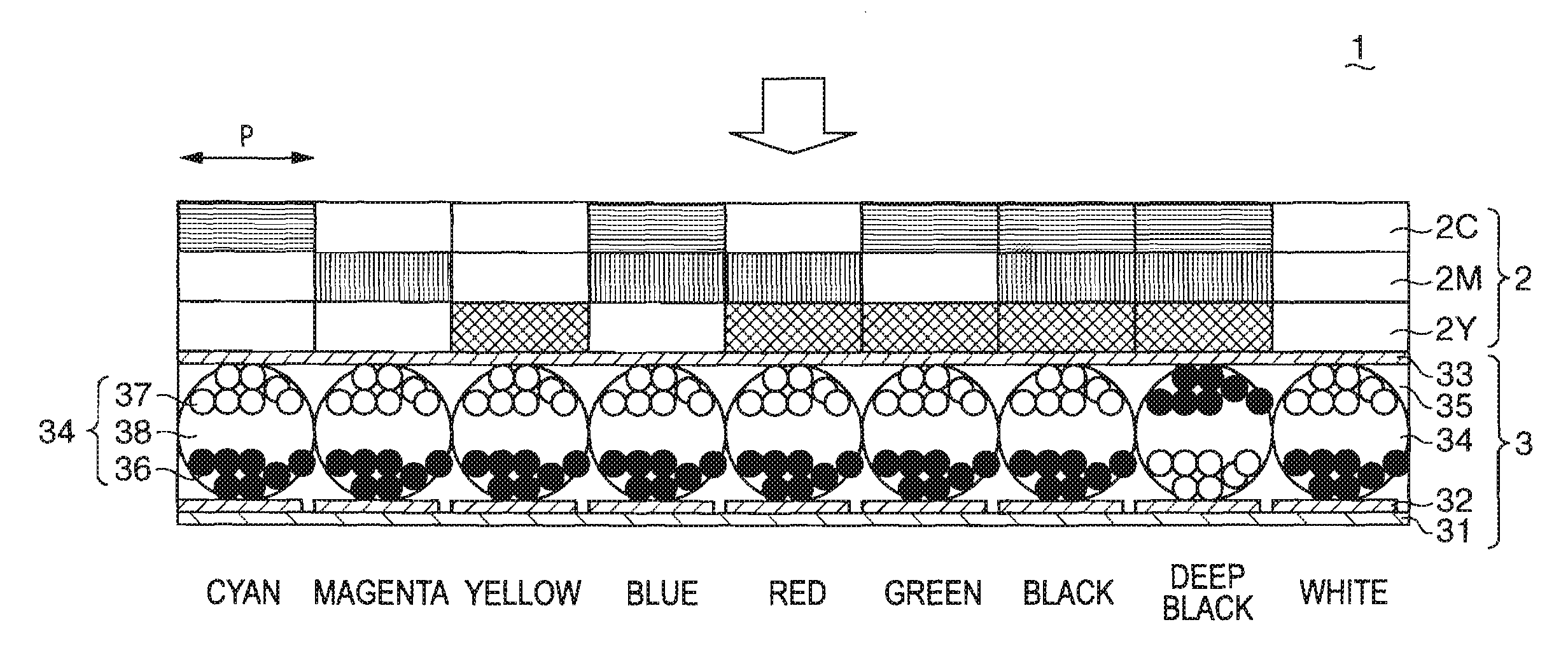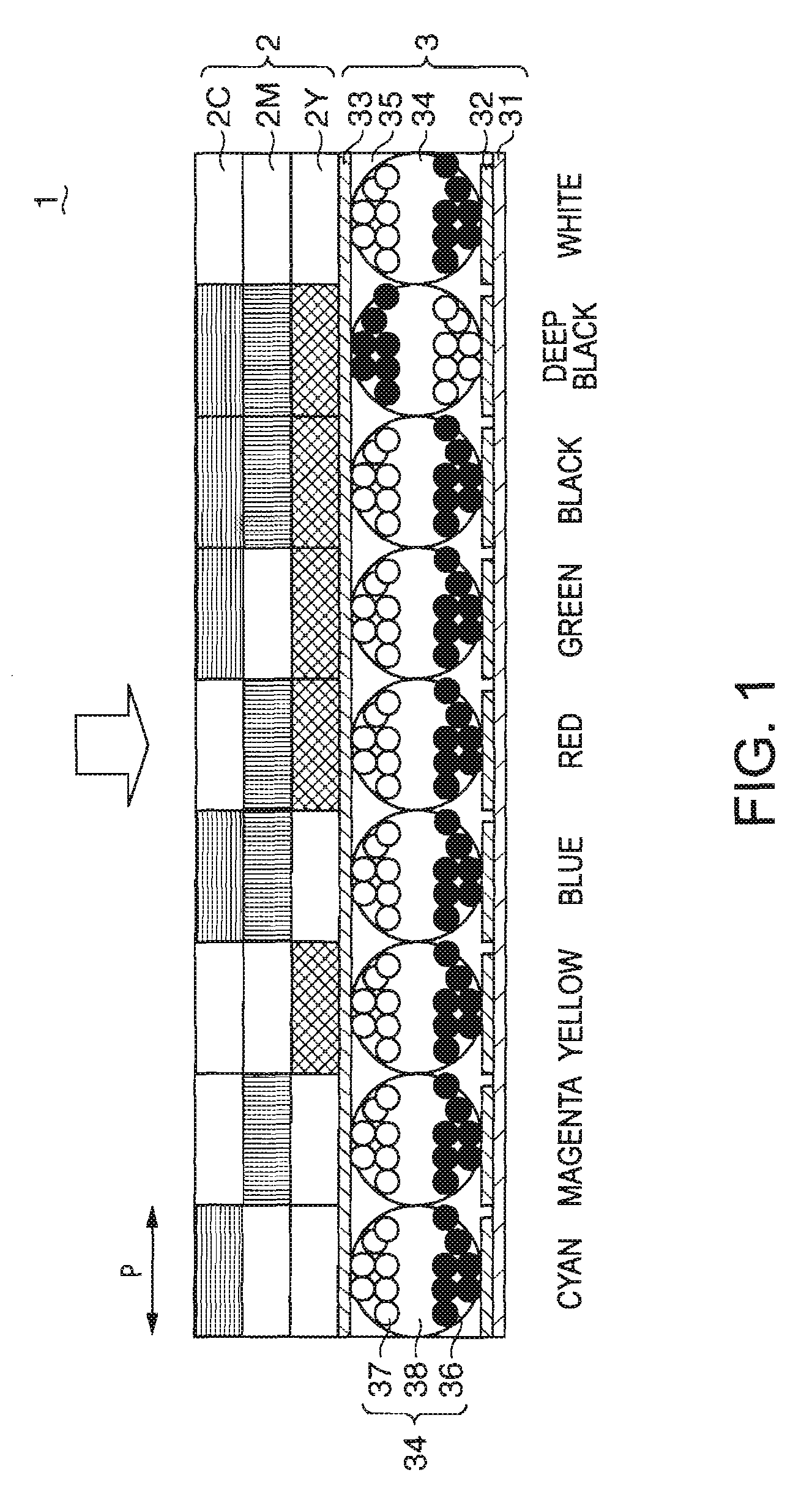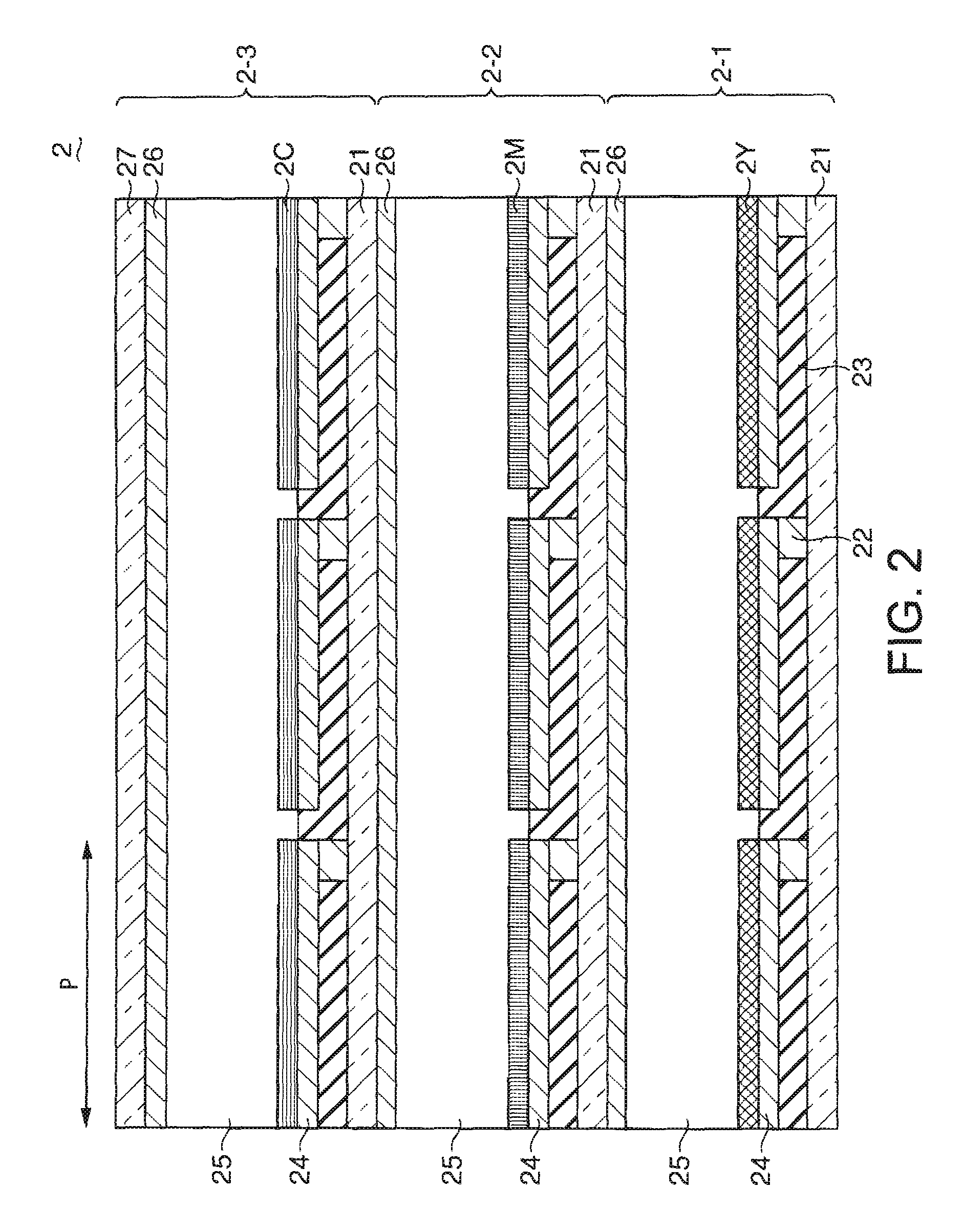Display device
a display device and display technology, applied in non-linear optics, instruments, optics, etc., can solve the problems of inability to express perfect black, and disadvantageous narrow expressible tonal range of brightness, so as to improve the use efficiency of light emitted from the light quantity control device, the effect of good display properties
- Summary
- Abstract
- Description
- Claims
- Application Information
AI Technical Summary
Benefits of technology
Problems solved by technology
Method used
Image
Examples
first embodiment
[0027]Hereinafter, embodiments of the present invention will be described with reference to drawings.
[0028]FIG. 1 is a cross-sectional view of a reflective display device according to a first embodiment.
[0029]As shown in FIG. 1, a display device 1 according to this embodiment is structured by laminating a color filter 2 and a light quantity control element 3.
[0030]The color filter 2 has a multiple types of layers of electrochromic (EC) dyes referred to as electrochromic layers. Each of the layers is disposed on a pixel P by pixel P basis and exhibits reversibly coloring or decoloring characteristics. In this embodiment, the single pixel P is provided therein with the electrochromic dye developing cyan, i.e., a cyan EC dye 2C, the electrochromic dye developing magenta, i.e., a magenta EC dye 2M, and the electrochromic dye developing yellow, i.e., a yellow EC dye 2Y, which are placed in a laminated manner.
[0031]An electrochromic material exhibits reversible coloring or decoloring char...
second embodiment
[0055]FIG. 3 is a schematic cross-sectional view of the color film 2 of a display device according to a second embodiment. Explained in the second embodiment is a case where the laminated body of the EC dyes 2C, 2M, and 2Y is intervened between the display electrode 24 and the counter electrode 26.
[0056]The color filter 2 has the transparent substrate 21 made of glass or the like, the thin-film transistor 22 and the interlayer film 23 both formed on the transparent substrate 21, the display electrode 24 formed on the thin-film transistor 22 and the interlayer film 23, the EC dyes 2C, 2M, and 2Y, the counter electrode 26 disposed on the laminated body of the EC dyes with the electrolyte intervened, and a counter electrode 27 made of grass or the like formed on the counter electrode 26. The counter electrode 24 is common to all pixels and the display electrode 24 is divided on a pixel basis.
[0057]The second embodiment requires selection of the EC dyes 2C, 2M, and 2Y that satisfy a fol...
third embodiment
[0061]FIG. 4 is a view showing a structure of a display device 1 according to a third embodiment. Examples of the reflective display device are explained in the first and second embodiments but an example of a transmissive display device is explained in this embodiment.
[0062]In this embodiment, the display device is formed by laminating the color filter 2, the light quantity control element 3, and a backlight 4 serving as a light source. A structure of the color filter 2 is the same as that of the first embodiment, so that corresponding explanation is omitted. The backlight 4 emits write light to the light quantity control element 3.
[0063]The light quantity control element 3 controls the quantity of light emitted to the laminated body of the EC dyes 2C, 2M, and 2Y. In this embodiment, the light quantity control element 3 controls the quantity of transmitted light which is emitted from the backlight 4. Therefore, in this embodiment, a liquid crystal 39 is used as a display medium fil...
PUM
| Property | Measurement | Unit |
|---|---|---|
| voltage | aaaaa | aaaaa |
| electrochromic | aaaaa | aaaaa |
| transparent | aaaaa | aaaaa |
Abstract
Description
Claims
Application Information
 Login to View More
Login to View More - R&D
- Intellectual Property
- Life Sciences
- Materials
- Tech Scout
- Unparalleled Data Quality
- Higher Quality Content
- 60% Fewer Hallucinations
Browse by: Latest US Patents, China's latest patents, Technical Efficacy Thesaurus, Application Domain, Technology Topic, Popular Technical Reports.
© 2025 PatSnap. All rights reserved.Legal|Privacy policy|Modern Slavery Act Transparency Statement|Sitemap|About US| Contact US: help@patsnap.com



